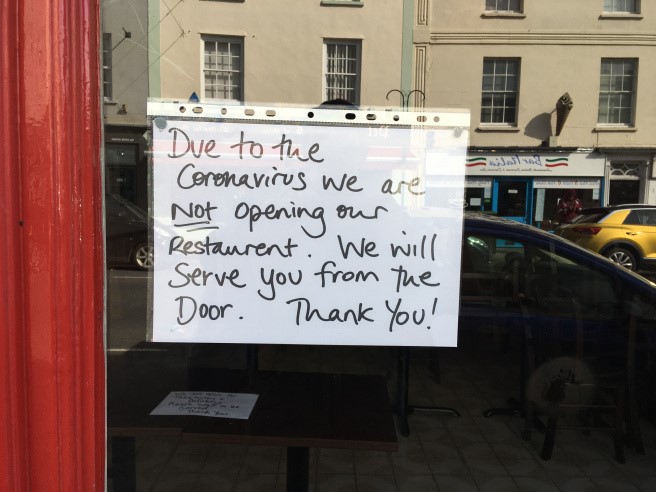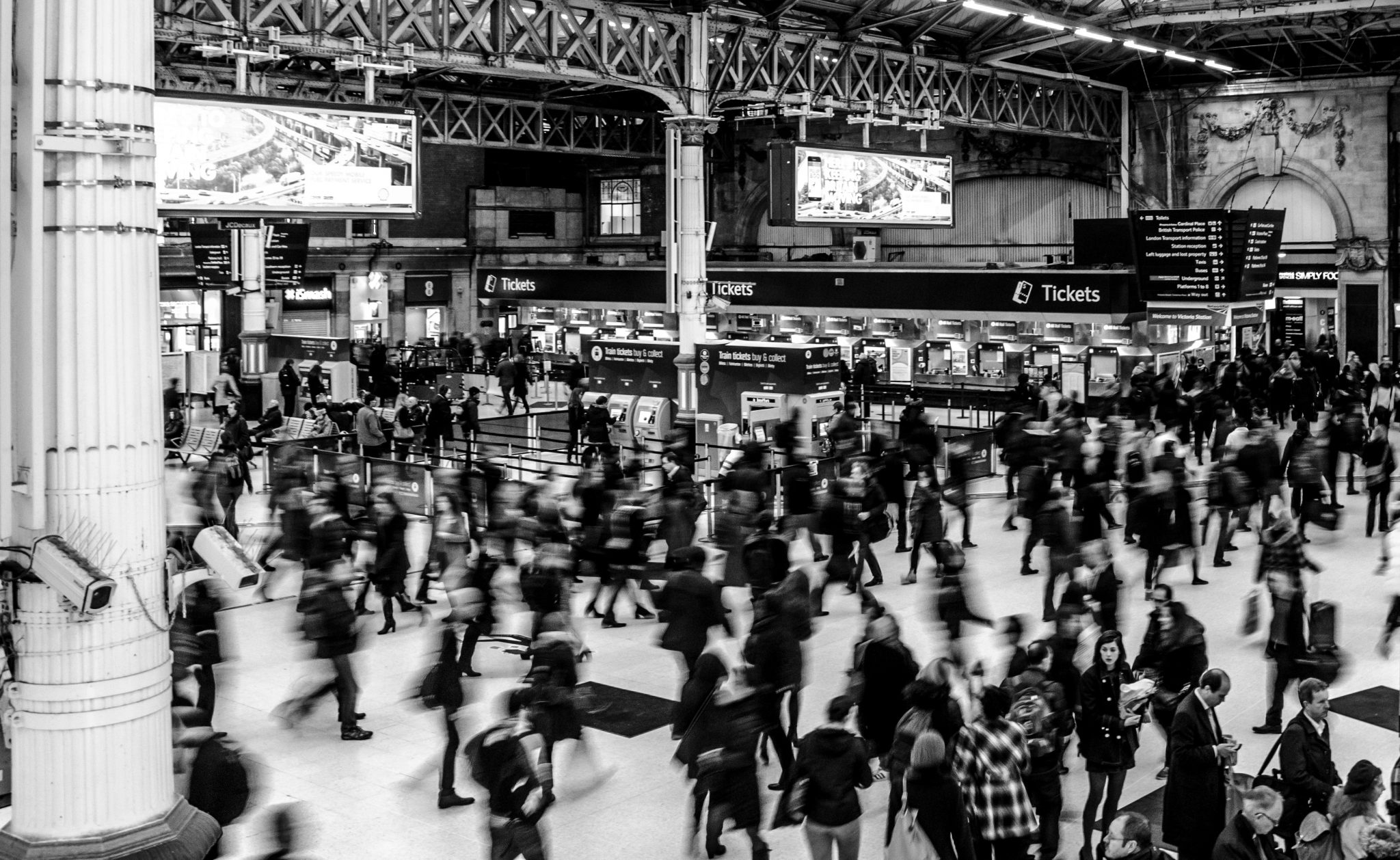One of my saddest moments from the last six months came when I left our office in Bristol for the last time before lockdown started.
It was 19 March and news broke that all but ‘essential’ travel for work was discouraged. Full lockdown was four days away, but we decided at Social to work from home until further notice from that point. Although we were used to flexible working, vacating our offices en masse took things to a different level.
On the bus home from Bristol, my head was spinning with questions. How are our clients coping? Would clients leave us? What would happen if they did? When would we see the office or colleagues again? After all our work over the previous two-and-a-half years to build a viable business, this felt wounding and deeply unfair. Swapping WhatsApp messages with colleagues, sitting on the top deck, I felt alone.
That week, I spoke with each member of the Bristol team and felt that while there was a chance of getting through this, we had to dig in and work for that outcome. And that’s what we did.
We’ve kept most clients and found new work. We’ve moved into new areas, helping clients engage communities, manage issues and grow. We’ve grown and created new jobs. This week, a new starter joins my team. We’ve done all of this from home, having left our office in the summer.
When I think of how I felt on the way home in March, what’s happened since feels incredible. For me, it’s been a steep learning curve. It’s been physically and emotionally draining. Above all, it’s been hard work.
This is my personal backdrop to recent stories about the emerging narrative to persuade people to get ‘back to work’ in a bid to save city centres.
Working from home = work
It maddens me that Ministers and the media speak about returning to the office in such terms after how people responded to recent challenges.
For anyone who hasn’t seen it – and if you follow me on Twitter you may have done: the government is said be to embarking on a campaign to get staff to return to offices after forcing them to work from home for months. A version of this story ran across the The Telegraph‘s front page at the weekend under the headline: ‘Go back to work or risk losing your job’.
‘Go back to work’. If you’ve been flat out for the last six months, juggling professional, family and caring responsibilities, just let that sink in. Not ‘back to the office’. Back to work. I’m struggling to make sense of my colleagues’ time sheets if they’ve not been ‘at work’ for the last few months. What have they been doing? How has our business stayed open? Why am I so knackered?!
I’m an avid supporter of flexible working, but I’m not one of those who thinks that office life has had its day. The last six months have brought home what I miss about the office when I’m at home. I miss my team. I miss my clients. I miss the sense of community and collaboration. I miss the opportunity to spark ideas and learn from those around me. I am also deeply concerned about the future of towns and cities (and have been since long before lockdown happened).

But one thing I haven’t missed is ‘work’. I don’t need an office to do that. I’ve not worked harder at any point in the last 20 years.
The notion that ‘work’ is best done in an office has been debunked many millions of times over since lockdown started. So much so that major employers like Capita are closing their offices while others show no sign of returning in significant numbers, at least for the time being.
I don’t want to debate whether home or office working is better. I like both and want the option to choose either. But I’m struggling to understand why the phrase ‘back to work’ is being thrown around when so many of us have worked our arses off since the government told us to leave our offices.
New normal, or more of the same?
It seems the government was briefed recently on the impact of working from home – on city centres, spending in cafes and shops, business closures and lost jobs – and has been spooked into action. Or, at least, it wants to be seen to act, as Isabel Hardman wrote in response to The Telegraph piece.
This is understandable, but it highlights another gap in the ‘back to work’ narrative: a desperate lack of imagination – or even a desire to think – about what our towns and cities could be. This seems especially true for places that aren’t London.
We urgently need to find the space to rethink our town and city centres, to help them adapt and become better places for people who want to live and work there. Locally, these conversations are happening. Nationally, we see little beyond gimmickry and headline grabbing.
In Bristol last week, we hosted a webinar with my former colleague Colin Molton, which considered questions about the future of workplaces, towns and cities. The conversation was thoughtful and generated intelligent perspectives from people who are working to help places adapt to change. The 38-minute discussion is captured below and you can register to catch up here.

These conversations feed into questions about how we can intelligently support businesses and create work spaces which are more than just places to park yourself for eight hours. Answers to these questions are not entirely clear. Finding the right solutions will be painstaking work. There is no ‘fast track’ to brilliant places, whatever Ministers say. We certainly won’t find them by laying responsibility for their future at office workers’ doors.
And we won’t begin to address the challenge of reinventing towns and cities with a campaign that presses people to get ‘back to work’.
Walking our own path
It’s been great to be back in Bristol this week to welcome our new colleague to the team and look at new office space. I’m looking forward to going into Bristol more often, although it won’t be every day. I’ve got too much ‘work’ to do to justify the daily commute.
When we get a new office, I want it to be somewhere that brings us together and inspires us. It will be part of a culture that sees us work from anywhere, if that’s what’s best. We will work this out in a way, and at a pace, that suits us.
Ministers have no business in telling us how to do that. I’d rather they worked with councils and stakeholders to create the conditions that enable cities to adapt to these changes, rather than clinging to a broken model and hectoring people to prop it up.
If we want our cities to be cleaner, more productive and successful, a ‘back to work’ campaign has no part to play in that transition.


